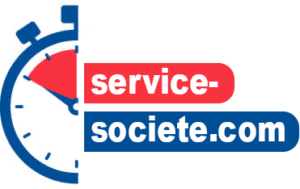SARLU
The SARLU (Société A Responsabilité Limitée Unipersonnelle) is a variant of the SARL legal form.
The SARLU consists of a single shareholder (partner); the company’s minimum share capital is 1 euro.
The liability of the sole shareholder is limited to his contribution to the share capital.
The company is managed by one person (a director); the manager administers the company and is theoretically responsible for its management; he or she may also be the shareholder.
The SARLU, like the SARL, has lost popularity because of the administrative burden and cost associated with the compulsory social security contributions of the self-employed manager, unlike the SAS-type form (and the SASU) which do not have to bear this requirement.
A statutory auditor is required if the company meets two of the following conditions:
- it has more than 50 employees
- it has net sales in excess of €3.1 million or a balance sheet total in excess of €1.55 million.
EURL (Sole Proprietorship with Limited Liability)
The EURL is a legal form of company owned by a single person (sole shareholder).
The EURL is wholly owned by a sole trader, but is legally formed as a limited liability company.
The director of an EURL is a “manager”. The manager is generally the owner of the company, but may also be a third party.
If the manager is not the owner of the company, the appointment of the manager must be carefully considered, as it has important legal, tax, social security and employment law implications.
If the owner of the EURL employs a third party as manager, the latter is considered as an employee and the company is then subject to the specific social security obligations of the employer and the employee.
The company can be set up with little share capital, starting at €1; the liability of the owner of an EURL is limited to his contribution in share capital, except for any other guarantees he may have given (bank, lease, credit, etc.), in which he would have declared himself personally in solidum (obligation of solidarity on one or more commitments).
The share capital may be contributed in cash or in kind.
As far as taxation is concerned, an EURL may choose to be taxed under the personal income tax (IR) system (so there is no distinction between business profits and personal income), or to pay corporation tax (IS) on the company’s profits.
In the latter case, any remuneration paid to the EURL manager is a deductible expense from the company’s profits.
The company owner may choose to receive all or part of his remuneration in the form of dividends, which offers certain tax advantages.
Regardless of the tax base on which the EURL owner chooses to be taxed, he pays social security contributions as a self-employed person under the regime for non-salaried workers (TNS), unlike SASU chairmen (see our SASU description).
